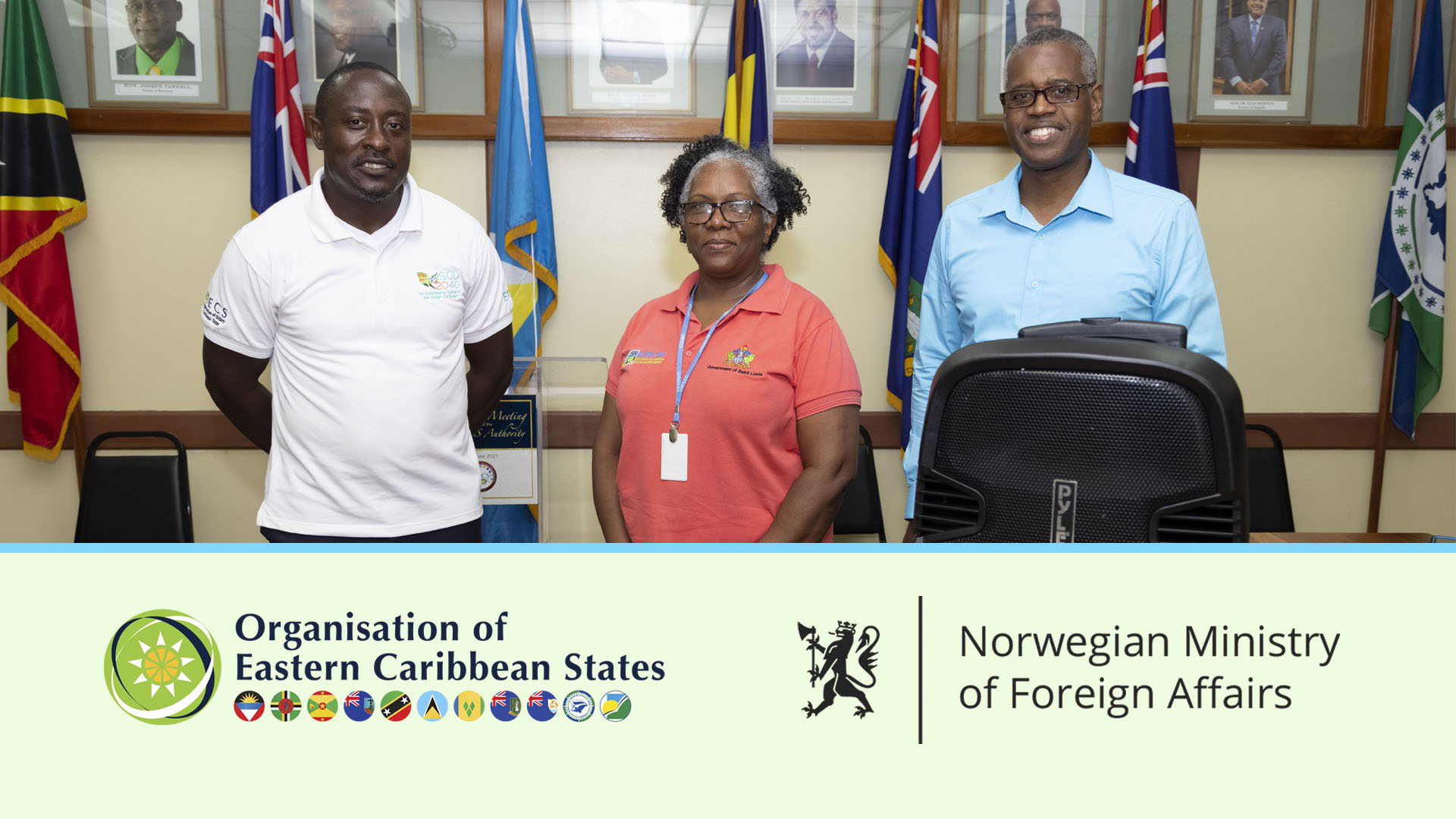Saint Lucia’s Department of Sustainable Development Receives Communication Equipment Through ReMLit Project
Media Release
The OECS Environmental Sustainability Division has been conducting several initiatives to reduce and control marine pollution in the Eastern Caribbean. One of these initiatives is the Building Resilience in the Eastern Caribbean through Reduction in Marine Litter (ReMLit) Project, funded by the Government of Norway. Thus far, the Commission has undertaken several concrete interventions to achieve this primary objective within beneficiary Member States, namely, Antigua and Barbuda, Commonwealth of Dominica, Grenada, Montserrat, Saint Lucia, and Saint Vincent and the Grenadines.
The interventions include the implementation of a ReMLit Communications Strategy to create greater awareness on the need to properly dispose of litter that often finds its way into the marine environment. One recent initiative was the release of the More Than Just Islands music video, featuring ten prominent music entertainers from OECS Member States.
To further the communications objectives of the ReMLit project, on Friday August 6, 2021, the OECS Environmental Sustainability Division handed over some communication equipment to Saint Lucia’s Department of Sustainable Development. The equipment was received by Ms. Silka Tobias, Deputy Permanent Secretary in the Ministry of Education, Sustainable Development, Innovation, Science, Technology and Vocational Training.
Upon receiving the items, Ms. Tobias said,
“I want to assure you that the equipment that you have handed us today will go a long way in helping the department fulfill its mandate of providing information to the public, and enhancing our communication with the persons out there to let them know what is going on. We are very grateful for it.”
ReMLit is a 27 million Norwegian Kroner (approximately US$ 3 million) project implemented under the OECS Ocean Governance and Fisheries Programme, with funding support from the Government of Norway. The ReMLit project, which aims to reduce and control marine pollution in the Eastern Caribbean, was launched in 2019 and is expected to be completed by 2022.

